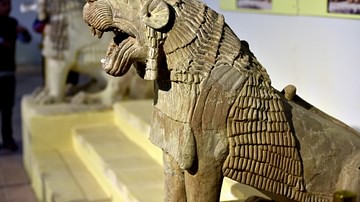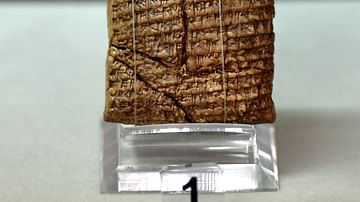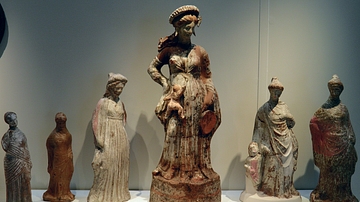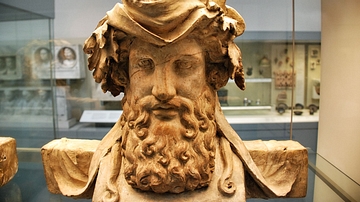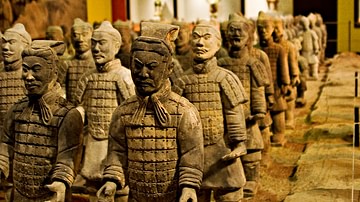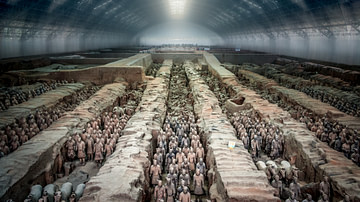Illustration
This terracotta lion was found at the entrance to the Dagan Temple at Tell Harmal (ancient Shaduppum), in the eastern outskirt of Baghdad. The temple was dedicated to Nisaba (goddess of the grain and writing) and her consort, Haja.
The temple was a typical Old-Babylonian one, with a short staircase made of mudbricks and flanked by platforms, on which those lions once stood. The lion was constructed from many fragments. The gaping jaw and bristly mane would avert any evil from entering the temple.
Baked and molded clay (with a hollow interior). Old Babylonian period, c. 1800 BCE. On display at the Iraq Museum in Baghdad, the Republic of Iraq.
About the Author
Cite This Work
APA Style
Amin, O. S. M. (2019, May 23). Terracotta Lion from Tell Harmal. World History Encyclopedia. Retrieved from https://www.worldhistory.org/image/10752/terracotta-lion-from-tell-harmal/
Chicago Style
Amin, Osama Shukir Muhammed. "Terracotta Lion from Tell Harmal." World History Encyclopedia. Last modified May 23, 2019. https://www.worldhistory.org/image/10752/terracotta-lion-from-tell-harmal/.
MLA Style
Amin, Osama Shukir Muhammed. "Terracotta Lion from Tell Harmal." World History Encyclopedia. World History Encyclopedia, 23 May 2019, https://www.worldhistory.org/image/10752/terracotta-lion-from-tell-harmal/. Web. 17 Apr 2025.



